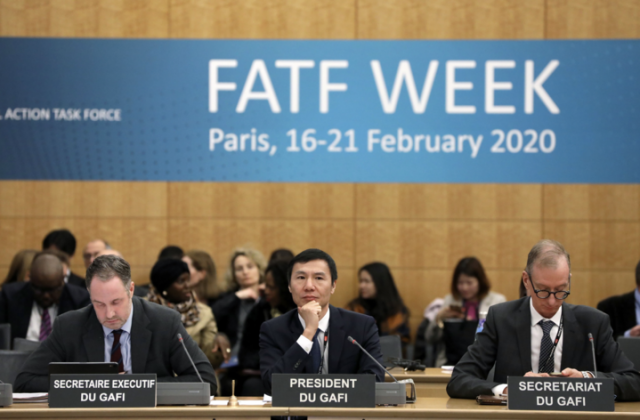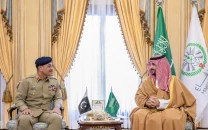Pakistan pins hopes on ‘onsite visit’ to exit FATF 'grey list'
Despite efforts, official sources say the country would stay on the grey list at least until February next year

Pakistan is unlikely to exit the “grey list” of the Financial Action Task Force (FATF) in the ongoing deliberations in Berlin, Germany but hoping to secure an 'onsite visit' that may take Islamabad a step closer to get out of the watch list.
Pakistan was placed on the grey list in June 2018 and was given a 27-point action plan to restrict terror financing activities. In October last year, the country was given another seven-point action plan after it completed 26 of the 27-point action plan originally given to it in June 2018. In the last plenary held in March, Pakistan informed the FATF that it had completed 32 of the 34 action items
Despite Islamabad’s hectic lobbying to get some relief from the international watchdog for financial crimes such as money laundering and terror financing, official sources told The Express Tribune that Pakistan will stay on the grey list at least until February next year.
The FATF plenary that kicked off in Berlin on Tuesday will review Pakistan’s progress and decide whether to keep it on the aforesaid list or not. The decision will be announced on June 17 at the conclusion of the meeting.
Also read: Pakistan not in danger of falling in FATF blacklist: sources
“At best we may get an onsite visit (of FATF officials),” a senior official said while requesting anonymity.
"If the FATF agrees to the onsite visit, that would be a step closer to Pakistan getting out of the grey list," he added.
But even in that case, the announcement would be made in the next plenary to be held in October and Pakistan may officially exit the list in February next year.
Minister of State for Foreign Affairs Hina Rabbani Khar, who is also the Chair of Pakistan’s National FATF Coordination Committee, is leading the delegation in the ongoing talks.
“During the meeting, Pakistan’s progress under the 2018 and 2021 action plans will be discussed. The plenary will review the recommendations of FATF’s International Cooperation Review Group (ICRG),” stated a statement issued by the Foreign Office.
The minister will also hold meetings with the incoming and outgoing presidents of the organisation, the executive secretary of the FATF and heads of delegations of the member states to apprise them of the tremendous progress made by Pakistan in completing the action plans.
Also read: FATF retains Pakistan on grey list
Khar will underscore the government’s high-level political commitment to further strengthen Pakistan’s domestic anti-money laundering and combating terror financing (AML/CFT) regime.
During the visit, the minister will also hold meetings with dignitaries in Germany in the context of Pakistan-Germany bilateral relations. She is accompanied by a senior-level delegation.
The FATF is an international watchdog for financial crimes such as money laundering and terror financing. It was established at the G7 Summit of 1989 in Paris to address loopholes in the global financial system after member countries raised concerns about growing money laundering activities.
In the aftermath of the 9/11 terror attack on the US, the organisation also added terror financing as the main focus area. This was later broadened to include restricting the funding of weapons of mass destruction.



















COMMENTS
Comments are moderated and generally will be posted if they are on-topic and not abusive.
For more information, please see our Comments FAQ